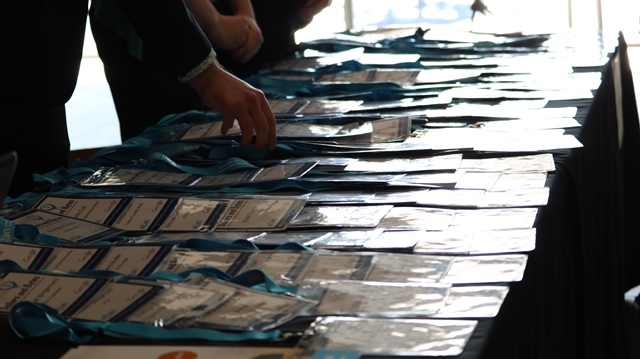Key Dates
2024 round now closed.
> View more information about our Grants Program
We can help. Contact us:
grants@accan.org.au
or phone 02 9288 4000
Subscribe to Grants Program mailings
The Regional, Rural and Remote Communications Coalition has welcomed the release of the Productivity Commission’s (PC) draft report into the Universal Service Obligation (USO) with its finding that the current arrangements are in need of reform, sooner rather than later.
Achieving a USO that is technology neutral and that provides access to both voice and data is one of the fundamental pillars that prompted the formation of this Coalition.
NSW Farmers Association President, Derek Schoen, said: “It is pleasing that the PC has recognised that the current USO agreement is out of date and that voice and broadband access should be part of the USO into the future.
Read more: Regional Coalition welcomes push for data and voice in the USO
ACCAN’s Indigenous Steering Committee has provided a response to the National Indigenous Australian Agency’s consultation on the development of an Indigenous Digital Inclusion Plan (the Plan). The Plan is intended to focus on access, affordability and digital ability as the three key elements of digital inclusion. It will also consider what data is needed to measure improvements in First Nations digital inclusion.
ACCAN’s Indigenous Steering Committee has recently been formed to guide ACCAN’s work to close the digital divide for First Nations peoples. Dr Heron Loban of Griffith University chairs the Committee, which is comprised of First Nations peoples with expertise and interest in telecommunications issues.
 This year our Conference, ACCANect: Equipping Consumers to Stay Connected, will focus on how consumers can navigate the often complex digital world. As part of the National Year of Digital Inclusion, the Conference will aim to empower consumers to get and stay connected to the phone and broadband services they need. The sessions and panels will look at practical tools for consumers to achieve this.
This year our Conference, ACCANect: Equipping Consumers to Stay Connected, will focus on how consumers can navigate the often complex digital world. As part of the National Year of Digital Inclusion, the Conference will aim to empower consumers to get and stay connected to the phone and broadband services they need. The sessions and panels will look at practical tools for consumers to achieve this.
Read more: Network and be inspired at the ACCANect Conference
Write comment (0 Comments)A group of like-minded advocacy groups have come together to end the data drought by forming the Regional, Rural and Remote Communications Coalition to champion better communications services for consumers and small businesses living in rural, remote or regional areas.
The Coalition includes the Australian Communications Consumer Action Network (ACCAN), the National Farmers’ Federation (NFF), the Country Women’s Association of NSW, the Isolated Children’s Parents’ Association and AgForce Queensland.
“The Coalition was formed to highlight the collective concerns of families, businesses and communities in rural and regional Australia about the lack of equitable access to reliable and quality telecommunications services in regional, rural and remote Australia,” ACCAN CEO, Teresa Corbin said.
ACCAN recently made a submission to the eSafety consultation on the Draft Restricted Access System Declaration 2021. The Declaration updates the 2014 Declaration to align with the changes in the Online Safety Act 2021. ACCAN broadly supports the Draft Declaration. However, we did reiterate our concerns that aspects of the enforcement mechanisms are unlikely to result in the intended outcome of greater community protection.
Read more: eSafety Restricted Access System (RAS) Declaration
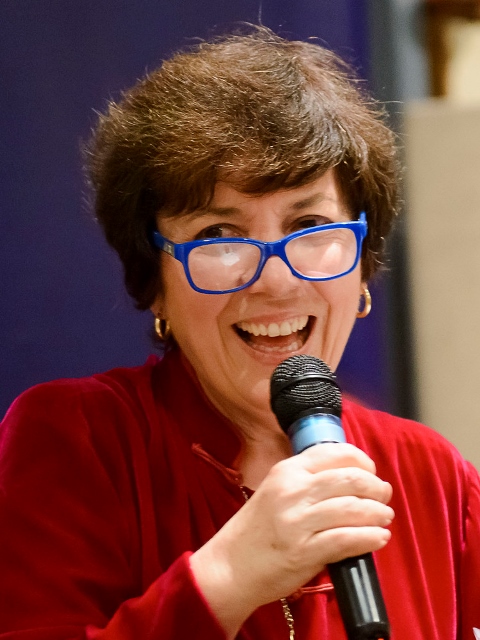 We’re excited to announce that the ACCANect Conference will be emceed by renowned freelance journalist and facilitator, Julie McCrossin. Julie has had a distinguished career as a broadcaster with ABC Radio National, ABC TV and Network Ten. She is well known for her warmth, intelligence and commitment to social justice issues.
We’re excited to announce that the ACCANect Conference will be emceed by renowned freelance journalist and facilitator, Julie McCrossin. Julie has had a distinguished career as a broadcaster with ABC Radio National, ABC TV and Network Ten. She is well known for her warmth, intelligence and commitment to social justice issues.
Read more: MC and keynote confirmed for ACCANect Conference
Write comment (0 Comments)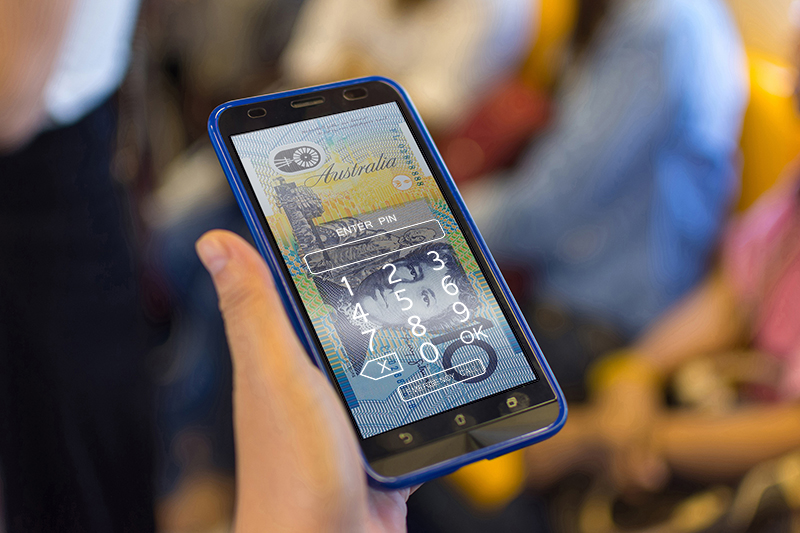 A major report into telecommunications affordability today launched jointly by the Australian Communications Consumer Action Network (ACCAN) and the South Australian Council of Social Service (SACOSS) highlights concerns about low-income consumers in staying connected to telecommunications services.
A major report into telecommunications affordability today launched jointly by the Australian Communications Consumer Action Network (ACCAN) and the South Australian Council of Social Service (SACOSS) highlights concerns about low-income consumers in staying connected to telecommunications services.
The report, Connectivity Costs: Telecommunications Affordability for Low-Income Australians, which was based on a survey of over 500 Centrelink recipients and low-income Health Care Card holders, as well as a series of focus groups, found that:
- 66 per cent of respondents rated telecommunications among the five most important factors in their household budget; but
- 62 per cent reported difficulty paying, having to cut back or that they had stopped using one or more telecommunications services for financial reasons in the last 12 months.
Read more: Telecommunications affordability report shows those on low incomes missing out
ACCAN recently made a submission to the Department of Infrastructure, Transport, Regional Development and Communications consultation on the Online Safety (Basic Online Safety Expectations) Determination 2021 exposure draft. The consultation provided an opportunity to comment on the government’s expectations on how online services should pro-actively act to protect Australians from online harm and abuse.
Read more: Online Safety Act (Basic Online Safety Expectations) Determination 2021
 If like me you’ve got Teflon-coated hands, then dropping your mobile phone and breaking your screen is a regular occurrence. To avoid expensive repair jobs you might consider taking out insurance. ACCAN’s investigator, Xavier O’Halloran, wades through the legal fine print and uses his abacus to crunch the numbers on three of the major insurance plans.
If like me you’ve got Teflon-coated hands, then dropping your mobile phone and breaking your screen is a regular occurrence. To avoid expensive repair jobs you might consider taking out insurance. ACCAN’s investigator, Xavier O’Halloran, wades through the legal fine print and uses his abacus to crunch the numbers on three of the major insurance plans.
Read more: Should I insure my smartphone?
Write comment (0 Comments)In a speech at the CommsDay Melbourne Congress 2016, ACCAN CEO, Teresa Corbin, outlined eight major priority areas for ACCAN in 2016-17. The consumer centred priorities relate to ACCAN’s core focus area of achieving affordable, available and accessible communications products and services for all Australians.
As an organisation, ACCAN represents all residential consumers and small businesses, including not-for-profit organisations. Each policy priority aims to address a segment of the market that is not working for a group or groups within Australia.
ACCAN recently made a submission to the eSafety Restricted Access System (RAS) consultation. The consultation sought feedback on how the new RAS can best balance both the policy objective of keeping children and young people safe online, while not placing unnecessary financial or administrative burden on industry.
Read more: eSafety Restricted Access System (RAS) Discussion Paper
Planning for our 2016 Conference, ACCANect: Equipping Consumers to Stay Connected, is well underway. We’re curating an exciting program (stay tuned for updates!) which will feature some inspirational and key figures in the telecommunications space. You can now register for the Conference. Remember: if you register before 12 August you can take advantage of early bird rates.
This is a busy time of year for everyone, and before we know it, it will be September and we’ll be welcoming you to our 2016 Annual Conference. While we were workshopping ideas and speakers for this year’s Conference, we got a little nostalgic and wanted to share with you some highlights of our past events.
Read more: Highlights from our past Conferences
Write comment (0 Comments)The Australian Communications Consumer Action Network (ACCAN) has launched its ‘Get Connected’ consumer resource which includes a mapping tool and a series of useful steps for consumers who are struggling to get an ADSL connection while they are waiting for NBN to arrive in their area. Issues accessing ADSL services have become a common complaint for consumers, particularly those who move into new areas.
The mapping tool helps consumers to understand the reasons that may be preventing them from getting an ADSL service. For example, if there are few ports available at the local exchange, if the neighbourhood is too far from an exchange or if the exchange is not ADSL enabled. The NBN will be connecting all areas and offering fast broadband connections for consumers. However, some consumers may be waiting months or years for the NBN to reach them. This mapping tool and accompanying useful steps will help them to make a decision about what services would meet their needs in the short to medium term.
The Federal Government has sought feedback on changes to Telstra’s carrier licence conditions. The proposed changes would increase Telstra’s level of reporting in regard to voice services that sit outside of NBN’s fixed line footprint.
Consumers living outside NBN’s fixed line footprint are heavily reliant on voice services provided over Telstra’s network, so it is important that the reliability of the services is transparent. It’s also essential that there is visibility of Telstra’s performance in meeting its obligations under the Universal Service Obligation regime, and how well it is meeting the Customer Service Guarantee standard.
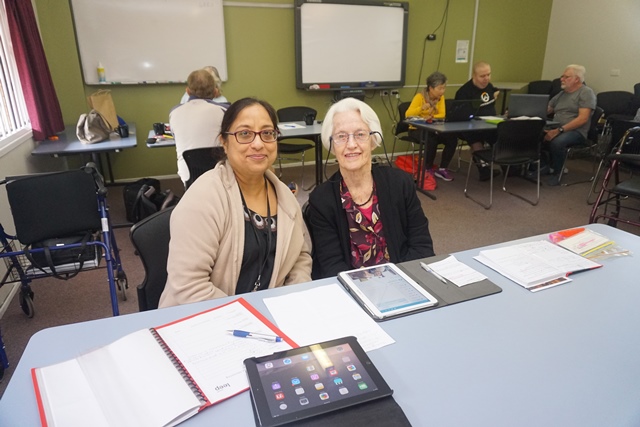 ACCAN has a broad membership base that represents groups in the community sector, disability sector, small business owners and more.
ACCAN has a broad membership base that represents groups in the community sector, disability sector, small business owners and more.
Our members are invaluable to the work we do as they are often invited to have their say in our submissions and consultations. Not only that, we look to our members to support ACCAN’s work and to let us know of the issues affecting their stakeholders.
Read more: ACCAN members have their say
Write comment (0 Comments)ACCAN’s 2016 National Conference, ACCANect: Equipping Consumers to Stay Connected, kicks off this morning with a focus on empowering consumers to get and stay connected to the phone and broadband services they need. Over two days the event will cover a range of topics including digital inclusion, affordability and digital government.
“We’re looking forward to exploring the issues that consumers face in getting connected particularly as our reliance on broadband to access services, education and employment opportunities grows,” said ACCAN CEO, Teresa Corbin. “Over the two days we’ll hear from experts about new research into digital inclusion and affordability. Sessions at the event will feature panel discussions on how we bridge the divide and get everyone connected and will examine barriers to getting connected.”
Read more: ACCANect Conference explores the tools consumers need to get connected
The ACCC sought views on proposed amendments to the Audit of Telecommunications Infrastructure Assets – Record Keeping Rules. The record keeping rules require carriers and carriage service providers to keep records on the location of their infrastructure and provide this information to the ACCC. ACCAN is supportive of the amendments to these rules which ensure that the information collected is kept up to date with industry developments and assists the ACCC in its regulatory functions.
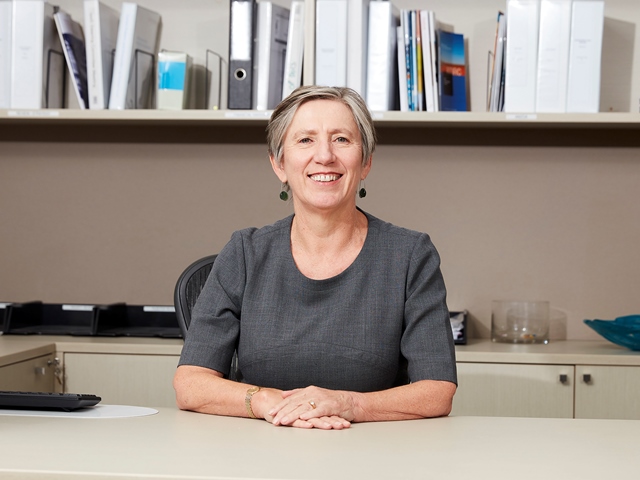 We interviewed the new Telecommunications Industry Ombudsman (TIO), Judi Jones, for our Winter Magazine to find out more about her past work experience and the future direction of the TIO.
We interviewed the new Telecommunications Industry Ombudsman (TIO), Judi Jones, for our Winter Magazine to find out more about her past work experience and the future direction of the TIO.
Read more: Our interview with the new TIO, Judi Jones
Write comment (0 Comments)The Australian Communications Consumer Action Network (ACCAN) believes that consumers need more information on broadband speeds and that this information should be clear and presented upfront. Broadband performance issues are the highest growing area of consumer complaints to the Telecommunications Industry Ombudsman, and ACCAN is regularly contacted by consumers about unusable broadband services.
ACCAN’s submission to the ACCC’s consultation on broadband speed claims highlights that information provided to consumers about broadband speeds is often confusing and can also be misleading as claimed speeds frequently don’t match reality.
Read more: Consumers need clear information about broadband speeds
The Australian Communications Consumer Action Network (ACCAN) has made a submission to the Department of Infrastructure, Transport, Regional Development and Communications in response to an issues paper regarding a new scheme for captioning on subscription (pay) television.
In our submission, ACCAN supported the proposal to simplify the current Pay-tv rules which are overly complicated and do not provide any clarity about which programs will be captioned.
ACCAN strongly supports the current legislated mandate that subscription television providers caption 100 per cent of their programming by 1 July 2033., As such, we did not support the proposed averaging of caption targets nor the proposed freezing of annual captioning increases.
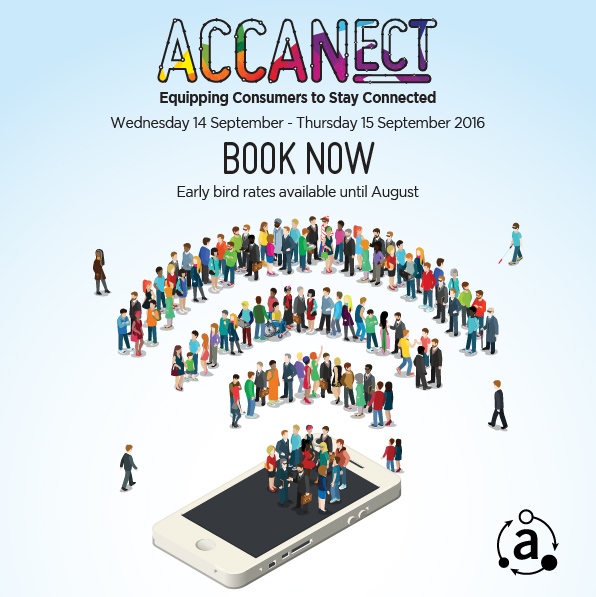 You’re invited to attend our 2016 National Conference - ACCANect: Equipping Consumers to Stay Connected. Registrations are now officially open.
You’re invited to attend our 2016 National Conference - ACCANect: Equipping Consumers to Stay Connected. Registrations are now officially open.
The ACCANect Conference will be held in Sydney on 14-15 September, 2016. Register before 12th August to take advantage of early bird pricing.
Read more: You can now register for the 2016 ACCAN Conference
Write comment (0 Comments)In its submission to the Productivity Commission’s review of the Universal Service Obligation (USO), the Australian Communications Consumer Action Network (ACCAN) has proposed an expanded scope for the USO, broader affordability measures and changes to ensure greater inclusion for people with a disability. The proposed changes would ensure that all consumers have access to essential communications services.
The current USO only guarantees supply of a standard telephone voice service. ACCAN believes this scope must be broadened to also guarantee data services, essential content (education and government services) and include service guarantees for connection, fault repairs and reliability standards.
Read more: USO needs to guarantee essential communications services
On 1 October 2021 the Digital Transformation Agency released the exposure draft of the Trusted Digital Identity Bill for public consultation.
ACCAN made a submission in response to the Bill welcoming the stronger privacy protections and enforcement and penalty provisions that have been introduced. However, ACCAN argued in favour of an oversight authority with more funding and a mandate to ensure consumers were compensated for breach of the legislation.
Read more: Digital Identity Legislation - Phase 3 Consultation 2021
The Australian Communications Consumer Action Network (ACCAN) says that extra funding the free-to-air networks will keep from the 25 per cent cut to broadcast licence fees should be used to fund improved accessibility features such as better captioning and audio description. Funding these services would help to make free-to-air TV more accessible to consumers living with a disability. The 25 per cent reduction in licence fees announced overnight in the Federal Budget follows a 50 per cent decrease to the fees in 2013.
“The cuts to the broadcast licence fees are good news for the free-to-air networks,” said ACCAN Disability Policy Advisor, Wayne Hawkins. “This funding could be used to improve captioning on free-to-air TV for people who are Deaf or hard of hearing and to put in place technology that would allow the networks to introduce audio description for people who are blind or vision impaired.”
Currently free-to-air channels do not caption any additional programming on their multi channels other than repeated programs from their primary channel. Primary channels must caption all programming between 6am and midnight as well as all news and current affairs programs. There are no requirements for audio description to be included on free-to-air television and currently none of the free-to-air networks provide this service.
Read more: Free-to-air networks should use budget windfall for improved accessibility features

